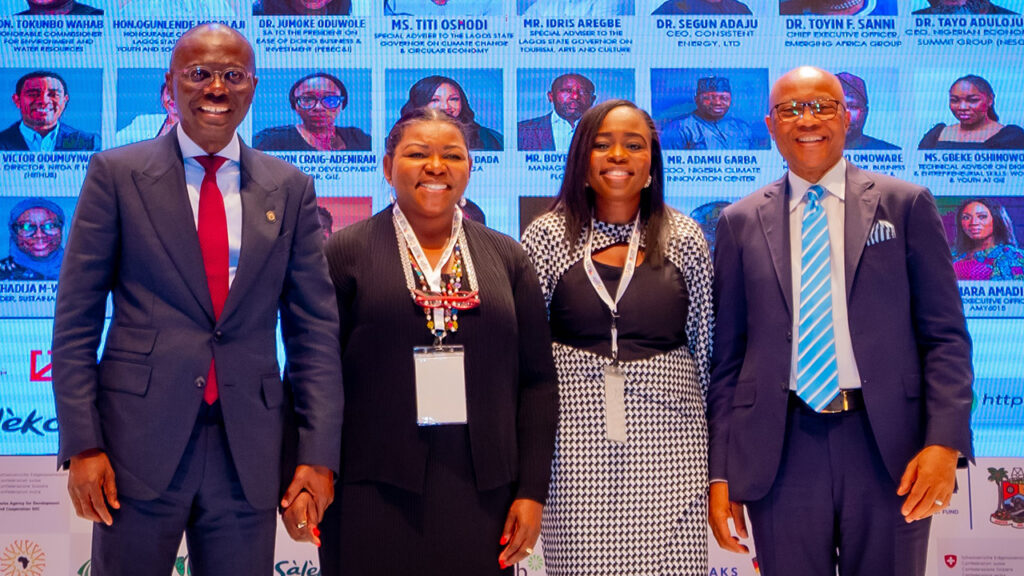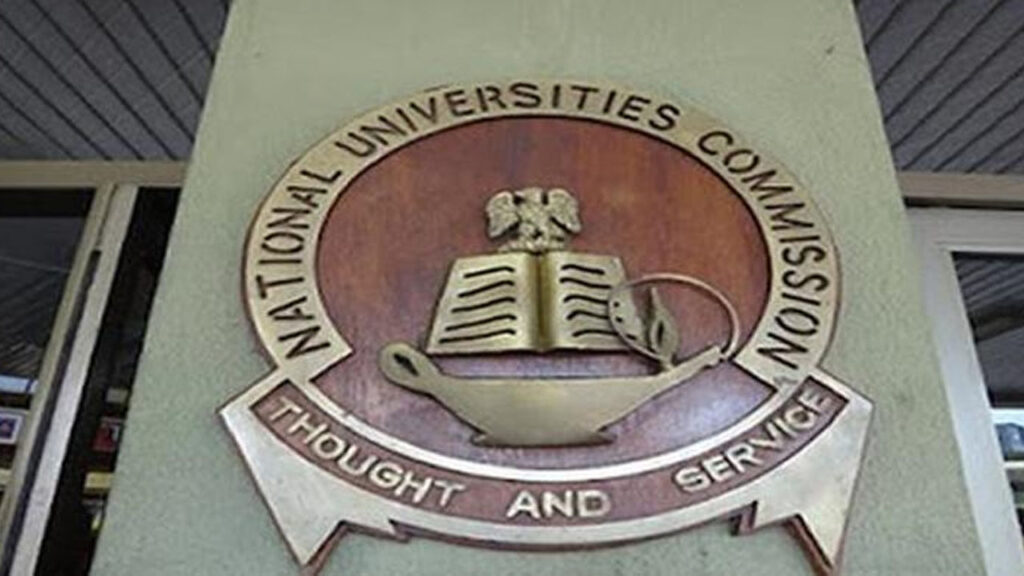
Can you share with us your Olashore journey? How it started, how it went and where we are now?
Well, I joined the school just after New Year in January 2016 as vice principal under the then principal, Mr Derek Smith. And one of my initial assignments as part of the school’s improvement programme was to take the school through membership of the council of British International schools, which is very important for the development of the school. it shows that our policies and procedures are in line with the highest international standards, particularly in the area of safety.
In 2019, Mr Smith left and I took over as principal. So, I am now in my third year as principal and I will be leaving shortly having taken the school through some significant and positive changes.
And I think what it has been all about is bringing everything we do in line with best modern practice, which is changing rapidly. And so, it has been six years of change, development and improvement.
What would you say was your biggest challenge managing a school like OIS regarded as an elite school with children mostly from privileged background?
We are an international school but with very deep roots within the local Nigerian community. This is reflected in our curriculum, we follow mostly United Kingdom curriculum but also Nigerian curriculum as well. We try to find a balance by upholding traditional Nigerian values, while we are a member of Council of British International Schools, we try to bring in a number of modern practices.
I think the balance we found is very good and I think that the people who come to Olashore having visited other Nigerian schools find our students to be very open-minded and knowledgeable. They are also very respectful and still uphold those traditional Nigerian values.
Recently, issue of bullying came to the fore with the death of a pupil in one of the popular private schools over allegations that the victim was bullied by some senior students. How do you tackle the problem of bullying at OIS?
There is a lot that goes on in a boarding school. Even with the most vigilant staff in the world, there is still a certain amount you are going to miss and anybody who works in a boarding school and says there is no bullying in their school is living in a dream world.
But at the same time, we have had policies and systems in place for a long time that will reduce bullying to the barest minimum and also to deal with it firmly and effectively when it does happen.
Recently, the association of international school educators of Nigeria introduced a strategy of having anti-bullying weeks in international schools and when this was discussed, I had to say that we have been holding such in Olashore even before I joined the school.
It is a week where students come together, have discussions and come up with their own strategies for dealing with bullying. This is a very important aspect of it, the students themselves are the best placed people to collate this.
We rely a lot in educating our students and making sure that they all know that there are trusted adults across the whole community that they can talk to when they have a problem.
We also work on educating them well, providing avenues to share their experiences and building a positive atmosphere. if you have a strong, positive resource in the school, then bullying will be minimal. So it does go on but when it happens, we deal with offenders quite harshly, while we try on the other hand to remedy the problems.
If there is tension between groups of students, we try and find out the causes and put things right, so it doesn’t repeat itself. And I can proudly say that bullying in OIS is minimal.
What kind of punishment do you give those caught bullying?
Early this year we had a case involving a group of five boys, what started off as a play turned into something else, as they ended up pinning one of their colleagues down, verbally abusing and pushing him around. We gave each of the five students involved in the act internal suspension, what that meant was that for five days, they were kept in isolation and after school were required to do manual work. They were also mandated to apologise to the victim.
One of the most interesting aspect is that two of the parents of the affected students objected to this punishment, they thought it was too harsh. I had to explain to them that if you are standing next to someone who is verbally abusing another person while you do nothing, you are part of the group and will be punished. as part of the group.
But the most important aspect is that those boys were counseled, had mediation meetings with both groups to rebuild the relationship because while punishment is necessary, the most important thing is rebuilding trust and relationships to forestall a recurrence.
Between 2016 and now, what are some of the challenges you encountered and what are some of the problems you think need to be fixed in our secondary education system generally?
In talking about the school programmes, I would look at three different elements. The first is the academic programme and there has been a lot of developments in this area.
Trying to maintain this balancing act of delivering the Nigerian curriculum effectively and keeping pace with changes in the international curriculum we are following is a big yak but our results have been very successful.
In 2019, we had the top student in the world in IGCSE mathematics, so in the area of academics, it has been a period of rapid change in development.
Every student in Olashore now has a personal IPad. So developing skills in our teachers so they can make use of the IPads during their lessons has been very important to us. That is on the academic side, which has been very successful.
We have also been trying to widen our extra curricular programmes, particularly our leadership programme to give it an international touch.
The other aspect I am going to mention is safety. This and child protection have changed rapidly through the six years I have been in the school. Procedures are now expected to be more tighter, so we have had to develop internal systems to keep pace with that.
For example, three years ago, we set up a body in the school called the students welfare group and this brings together counsellors, head of boarding, the school doctor, head of junior and senior students, to meet regularly.
Welfare has become so important, because as you dig deeper, you would find that many students have personal issues that affect their progress in school. It is a difficult age being a teenager and helping them through those times go a long way in getting them through school.
Boarding school is a challenge in itself, because you have to meet expectations of parents, living away from home, so it is a lot to deal with.
Issue of safety is a major concern, especially in schools as pupils and teachers are kidnapped by armed bandits. What is OIS doing to keep its students and teachers safe?
It begins in the hostels and we expect our hostel staff to know students in their care well. We have a very healthy ratio of hostel staff to students, so, there is a lot of personal interactions, as all the students interact closely and regularly with their hostel parents.
We expect students to attend meal times, and if a student is not eating them, we expect the hostel parent to take some actions and if necessary, involve parents in that discussion.
But the whole approach to health and safety runs right across the school. We expect our staff to be mindful of student’s safety, it is a priority. We have counselors and students have easy access to them if they want to talk about issues bothering them.
If a student has a problem, for instance if they are unhappy with the way they are interacting with a particular teacher, there is somebody they can go and talk to.
So, the clinic staff, hostel, teaching and extra-curricular staff, all have special relationships with the students it runs across everything we do and health and safety is a priority.
And as far as I am concerned, the welfare of students is our top priority.
Recently, an alumni alleged that the school didn’t handle a sexual abuse case against her while she was a student well and that was like 18 years ago. How do you handle cases of abuse in the school?
The particular case you are referring to was in 2004, the difficulty we have with her is just trying to find exactly what happened because the record on it is very limited.
Child protection documents are not kept for 18 years that is not good practice. And whichever country you look at you will see that child protection regulations would not expect you to keep critical documents for a long period of time. So it is difficult to comment on the specifics of that case because we don’t have the information to have what exactly happened at that time.
But what I can say is that any incident that comes to us, there hasn’t been a reported case of abuse since I joined the school, we would immediately investigate by trying to find as much information as possible. We will set up a disciplinary committee, take statements from witnesses, interview them and t try and put the facts together as much as possible before deciding on the cause of action to take.
But the actual cause of action is largely dictated by our disciplinary policy and the summary of flexibility in the policy in the example I gave, physical assault on student by another student is a level four offence and there are sanctions.
But trying to untangle events that happened 18 years ago is a challenge.
So what is next for you and the school?
I am going back to the UK and handling over to my successor Mr Guy Casacus, who would be leading the next phase
For the rest of the school, everything will take shape, it is a learning experience. This case of harassment happened in 2004, I have explained the difficulties in investigating it but that doesn’t mean we aren’t asking ourselves difficult internal questions.
And I think the big question I have been asking myself, asking all the staff is: this happened 18 years ago and we can’t get the root of exactly how it was investigated, but if this had happened recently would we have the necessary records? Would our procedures be robust enough to withstand public scrutiny? So, we are looking at that critically. then, there may be things that we have to improve on.
This is not just an internal audit because the complainant in this incident wrote a letter to the council of British schools making formal complaints against Olashore, which she is entitled to do.
Prior to that, before British Council of international schools received that complaint, they had already been contacted by me because when the incident became prominent on social media I contacted the council to seek their advise and ask key questions.
This is a learning experience for us as a school. I hope that at the end of all of this, an outcome is achieved that is just to all concerned.
It is totally wrong to say that the school is complicit in any kind of cover-up, we are not. If we find evidence of wrongdoing, we will put it right. If we find evidence of injustice, we will put it right and that is our position.
Six years down the line, what will be the special achievement of the school that you hold dear to your memory of the school?
There are many things that I have enjoyed in the school. What gives me the most satisfaction without hesitation is when I first came to the school, I saw that we had some very high achieving students who were really excelling in debating, sports, performing arts but something that struck me was that they were not many. We seem to see the same set of high achievers doing all the different things.
And the target I set for myself was that I wanted to give every Olashore student centre stage in something, to give them something that will make them proud and remember the school and also make their parents proud.
So, we introduced different activities that students with different talents could showcase, which would also increase the range of awards for the school instead of having just top students in examinations. We now award students who put in the most efforts and those who showed best behaviour.
So, by widening the scope of awards and encouraging more students to come forward, we have managed to get far more students involved and build their confidence. I can say that the thing I am most proud of the school is extending opportunities to the entire students body.
What are the final words you will like to leave for the school management, students and staff?
I want to urge my students to make full use of the different activities available in the school, get involved in everything, make the most of your time in the school because it is the time you will treasure. They should also be proud of where they come from because OIS has an excellent reputation, not by what is happening in the school today but by the reputation of former students, the reputation they built after leaving the school, the careers they follow, examples they set and how they conduct themselves.
So I encourage the students to carry that forward, carry the Olashore message and above all, make use of their time in school because they won’t have another opportunity like that.













